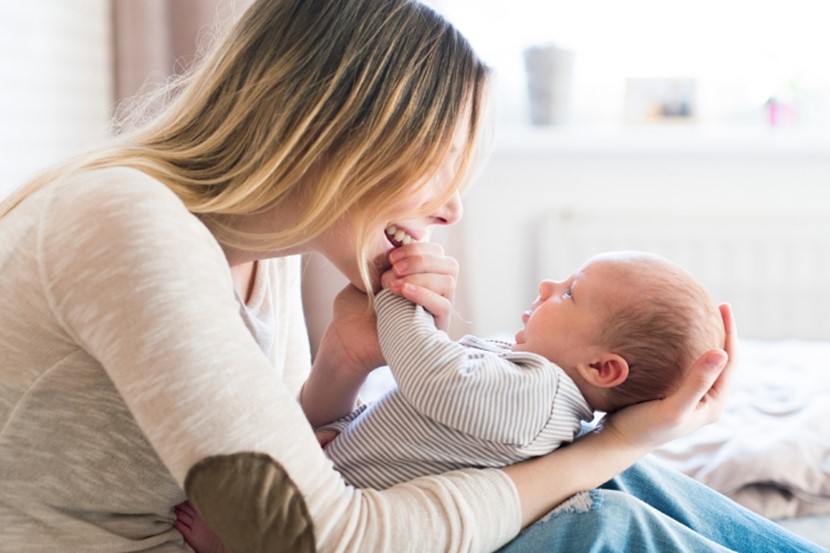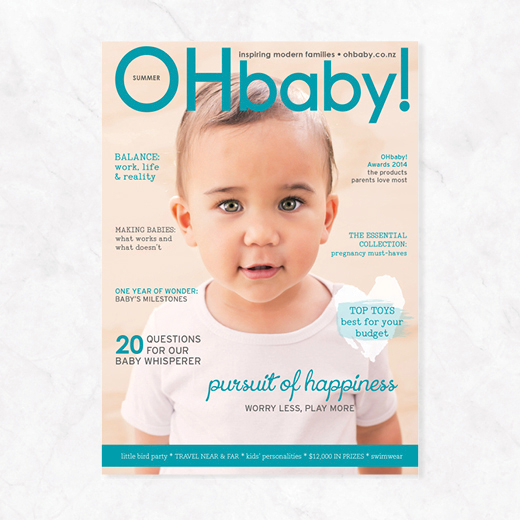How to overcome the worry that most parents face

Fear and worry can rob us of joy but the battle to guard our happiness is worth the fight, writes Dr Melanie Woodfield.
Have you ever looked back at photos of yourself in your teens and twenties, incredulous at how young and carefree you looked? Yet at the time you thought life was pretty tough, with flatmate or parent issues, exam stress and wondering about what the future held.
I suspect this current phase of life, parenting young children, may in fact be a little like those photos. Many of us feel undervalued, overworked, sleep-deprived and exhausted. Some parents are overwhelmed with worry about their children, their relationships and their future. However, later on in life it’s all too common for parents to wish they hadn’t been so worried and stressed so they could have enjoyed this time with their young children more. They often feel a sense of regret. Regret at not seizing the moment more often. Regret that all that fear stole the joy that this season in life can offer.
I’ve pulled together a collection of common (and often huge) worries that parents face. There’s no easy antidote to many of these, but my hope is that the following discussion will start you on the way to discovering that ‘worry thoughts’ aren’t necessarily truth, and even if they are true, they usually aren’t helpful.
Am I doing enough?
Almost definitely! The great majority of parents are doing the best they can. Every parent, without exception, wants the best for their child. For some parents, in situations of extreme deprivation and challenge, their own experience of childhood and day-to-day struggles can get in the way of them being the parent they want to be.
The government funded organisation, Strategies with Kids, Information for Parents (S.K.I.P.) sums up nicely the basic needs of children:
• Love and warmth
• Talking and listening
• Guidance and understanding
• Limits and boundaries
• Consistency and consequences
• A structured and secure world
Notice that the list doesn’t include the latest loom band kit, or a trip to Queenstown for a skiing holiday. The simple fact, on a foundation of solid research, is that kids just need you to be warm, consistent and available. And they’re able to cope if you can only provide that most of the time.
What if something bad happens to my child?
Isn’t it amazing how quickly and thoroughly our children nestle themselves into that part of our hearts that feels like it would utterly shatter if something happened to them?
We’ve all heard horror stories of life changing in an instant. It might be a car accident or in a doctor’s office where an unexpected diagnosis means life as we knew it is gone. While we can and should take reasonable precautions to keep our children safe, it can be hard to know how to keep the overwhelming fear at bay. How can we love them so fiercely, yet still live engaged in the present, and chase what’s important to us?
My concern is that distant possibilities can feel so frightening that they push us away from doing what we value in life.
In the majority of situations, when bad stuff happens there’s little we could have done to prevent it. Given that life inevitably involves pain, I think it’s important to think about how we want to behave regardless of the situations we face. That might be with courage, with assertiveness, being mindful of self-care or any number of ways of behaving (these are our values). Find ways to bring yourself back into the present, as the ‘what ifs’ of life can be serious joy-stealers.
Why is my baby not feeding and sleeping like all the others?
Comparison is the thief of joy.
As humans, and especially as mums, we tend to have an inbuilt reluctance to make ourselves vulnerable in front of others. We’re ashamed to admit we’re not coping, fearing that we’ll come across as weak or inferior. A coffee group can be a hothouse for stiff-upper-lipness. Our babies have knocked us for six and instead of admitting it and seeking support, we gather up all our defences, slick on lip gloss for the first time all week, and dress wee Junior in his best outfit.
A mum boasting that her week-old baby sleeps through the night could be in for a rude shock in a week or two. Or, maybe her definition of ‘through the night’ is 11pm till 3am. Or, maybe she’s been told it’s best to ignore newborns when they cry and baby has learned that it’s a waste of time to bother. My point is that it’s important not to take things at face value, especially if they seem too good to be true.
Of course not all groups are like that. Some are brilliant and friendships made there can persist for years. I’m a big coffee group advocate. But I’ve had too many years of meeting clients who, if you met them in the supermarket (or at coffee group) you’d think they had it all together. In the consultancy room however, they break down and admit they’re overwhelmed.
For more on this, I recommend Brené Brown’s TED Talk ‘Listening to Shame’ (ted.com).
Is my child delayed?
One of the things my training and experience tells me is that there is such a wide range of ‘normal’ when it comes to developmental milestones. As psychologists we tend to see each milestone as happening within a time range – for example, walking independently tends to happen somewhere between nine months and 16 months. And, we never look at behaviour in isolation. So, if a child’s not rolling over but has excellent head control and is making lots of eye contact and smiling and giggling, we’d tend not to be worried. Concerning delays are often (but aren’t always) across the board.
If you’re very worried, and/or if others have started noticing differences, a chat with your Plunket nurse is a great place to start. If they’re reassuring, but you’re still very worried, discuss the possibility of a referral to a paediatrician or child development service with your GP. Throughout New Zealand there are now infant mental health centres who specialise in working with children who fail to thrive or those who have been tracking along a particular trajectory but suddenly regressed. These centres can be accessed through your GP.
Did I do permanent damage when I yelled at them?
Chances are that if you are worrying about having yelled, it doesn’t happen that often. There were probably lots of things contributing, be it hormones, hunger, worries or stress. A good place to start is to try to manage the underlying cause of your outburst. The basics are oh, so, important. Eat well and regularly. Sleep when you can. It’s harder to regulate our emotions and inhibit our urges (to yell or hit or criticise or sneer) when we’re hungry and tired.
And if you did lose it? Accept that once it’s happened, you can’t change it. Yes, you did something unhelpful, but it’s in the past and you are only human. Next, ask yourself what you could do now, in the present, that’s important or meaningful and act on that.
An age-appropriate honest debrief with your child can’t hurt either – “I’m really sorry that I shouted and said those things. I’ve been feeling really stressed out, but it’s not okay to yell at you.” Having a frank discussion like this helps provide a language for your child to use when they’re stressed and want to shout.
It may surprise you to know that there are groups running throughout New Zealand to support women to manage their anger. In Auckland, for example, there’s Irate – look it up to find evening classes all across the city.
Is there something wrong with me when I don’t feel happy all the time?
One of the most common myths of motherhood is that we’ll be in rapturous awe of our offspring at all times. The funny thing is no one is happy all the time. No one. Research shows that we tend to think that others are happier than we are. Research also confirms our suspicions that parenting young children is, on average, the most stressful time in our life course.
Having said that, it pays to keep an eye on your mood and seek help if something’s awry. For example; if you’re sleeping a lot more or less (taking into account baby waking) than normal; if you’re feeling down most of the day, most days; if you’re often tearful or overwhelmed; if you’re eating a lot more or less than usual; if the things you used to enjoy aren’t bringing any pleasure; if people close to you express concern. If these things are happening then chat to your GP. Depression can be treated with medication and it’s getting easier to access high quality counselling sessions for little or no cost in many parts of New Zealand.
Parenting worries are common. My number one piece of advice? Google is not your friend, especially late at night when you’re sleep deprived and stressed. Instead, talk to your partner, parent or close friends. If worries remain, visit your GP. Remember not to treat worry thoughts as truth. And even if they are true, understand that they’re not helpful. Try, for as many moments each day as you can, to get out of your head, and into your life.
|
Dr Melanie Woodfield (DClinPsy, BSc(hons), MNZCCP) is a child and adolescent clinical psychologist in Auckland, and mum to two young boys. |
Photography: Annie McElwain, anniemcelwain.com

AS FEATURED IN ISSUE 28 OF OHbaby! MAGAZINE. CHECK OUT OTHER ARTICLES IN THIS ISSUE BELOW
















